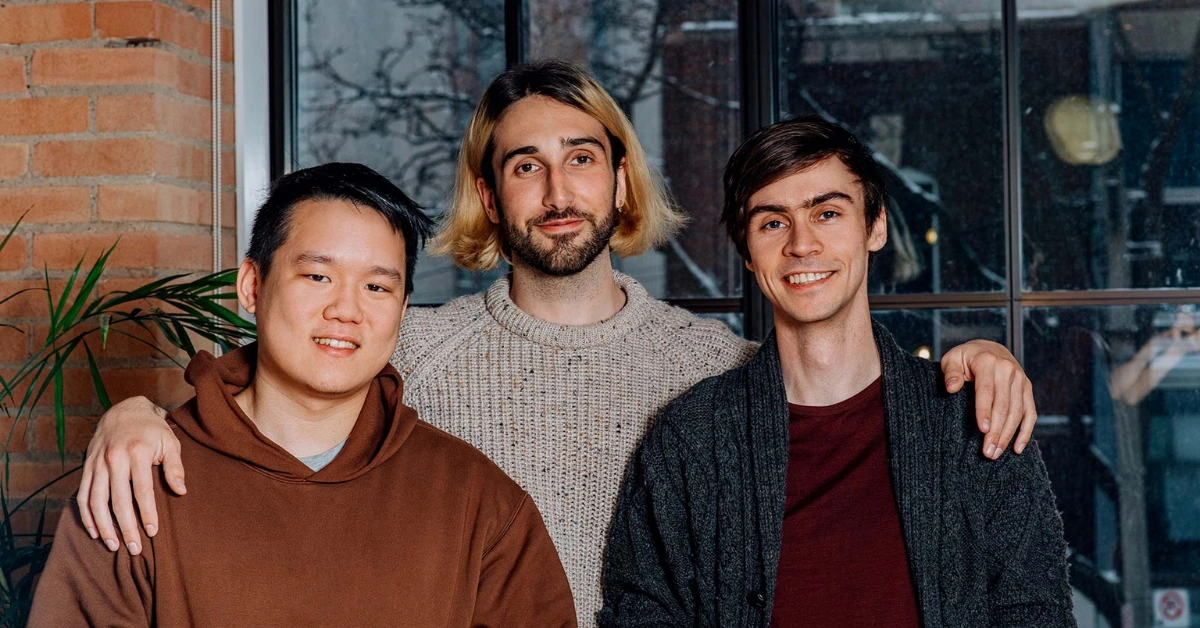THE ALGORITHM DAILY“Your Daily Dose Of AI News.” Top Story: Meta Snaps Up Former OpenAI Talent in High-Profile Team MoveIn what’s shaping up to be one of the most talked-about AI talent shifts of the year, several top engineers and researchers have left OpenAI to join Meta’s new Superintelligence Labs. Among them is Zhiqing, who, as one tweet humorously recalled, was a Carnegie Mellon University student just a year ago and is now “GPU rich.” The move sparked lighthearted commentary online, with one observer joking that OpenAI’s Sam Altman might now think twice before letting his best talent go live on a stream. Hyung Won Chung confirmed the transition in a post, revealing that he, Edward Sun, and Jason Wei had also joined Meta, calling the first month “fun” and praising the team’s focus on compute and long-term goals. While details of the deals remain under wraps, the internet buzzed with speculation, including quips about “nine-figure” contracts. The hires mark a major push by Meta to strengthen its AI capabilities, with its recruits bringing deep expertise in language models, evaluation, and scaling, a move that could intensify competition with OpenAI in the race for AI leadership. Cohere Hires Meta’s Joelle Pineau as First Chief AI OfficerAI startup Cohere has appointed Joelle Pineau, Meta’s former Vice President of AI Research, as its new Chief AI Officer. Pineau, who oversaw Meta’s Fundamental AI Research (FAIR) division, will lead Cohere’s research strategy and product development efforts. The role marks a significant hire for Cohere as it seeks to advance cutting-edge AI capabilities and strengthen its position in the increasingly competitive AI market. In her announcement, Pineau praised Cohere’s team and called the move “an exciting new chapter,” noting her commitment to supporting Cohere Labs’ research teams and contributing to the company’s mission of building high-quality AI solutions with strong standards of security, privacy, and transparency. She also thanked Cohere’s founders, Aidan Gomez, Nick Frosst, and Ivan Zhang, for bringing her on board, as well as friends and colleagues who had helped her explore opportunities in recent months. The hire signals Cohere’s ambition to compete at the top tier of the AI industry, directly challenging players like OpenAI, Anthropic, and her former employer, Meta. Meta Unveils DINOv3, a Breakthrough in Computer Vision ModelsMeta has introduced DINOv3, a state-of-the-art computer vision model trained using self-supervised learning (SSL) that delivers powerful, high-resolution image features without the need for labelled datasets. According to Meta, this is the first time a single frozen vision backbone has outperformed specialised solutions across multiple long-standing dense prediction tasks. Key features of DINOv3 include its ability to train on 1.7 billion images with 7 billion parameters without labels, making it effective in annotation-scarce situations like satellite imagery. It delivers excellent high-resolution features and top-tier performance, works across various vision tasks without fine-tuning, and comes with smaller distilled models such as ViT-B, ViT-L, and ConvNeXt for flexible deployment. Meta is releasing DINOv3 under a commercial licence, complete with pre-trained models, adapters, training tools, evaluation code, and more, aiming to foster innovation and collaboration in the computer vision community. Meta Faces Backlash Over AI Chatbot Guidelines Allowing Flirtation with ChildrenMeta is under fire after a report revealed internal guidelines that allowed its AI chatbots to have “romantic or sensual” conversations with children. The 200-page document, approved by Meta’s legal, policy, and engineering teams, included examples of flirtatious exchanges with minors and other troubling content, such as generating racist statements and false information. While Meta spokesperson Andy Stone confirmed the document’s authenticity, he said the guidelines were later changed and such interactions are no longer allowed. Child safety advocates, however, are demanding proof that the policies have been updated. The same document also outlined rules permitting demeaning speech based on protected characteristics, the creation of some violent imagery, and generating false statements if they were flagged as untrue. Meta denied allowing nude images but gave examples of sexualised images of celebrities with certain modifications. The revelations come as Meta expands its AI companion offerings, a move critics say exploits loneliness and puts children at risk of emotional harm. Lawmakers and safety groups are calling for stronger restrictions on AI chatbot interactions with minors. Cohere Raises $500 Million, Valuation Climbs to $6.8 BillionCohere has secured an oversubscribed $500 million funding round, boosting its valuation to $6.8 billion, up from $5.5 billion last year. Founded in 2019 by Aidan Gomez, co-author of the “Attention Is All You Need” paper, the Toronto-based company focuses on secure large language models (LLMs) tailored for enterprise use rather than consumers. Cohere has built partnerships with major tech firms such as Oracle, Dell, SAP, Fujitsu, and LG CNS, as well as enterprise clients like RBC. The latest round was led by Radical Ventures and Inovia Capital, with participation from AMD Ventures, Nvidia, and Salesforce Ventures. As part of its growth push, Cohere has been expanding its leadership team, recently hiring former Meta AI research head Joelle Pineau as Chief AI Officer and former Uber finance executive Francois Chadwick as CFO. While Oracle backed Cohere in 2023, it was not listed as an investor in this round, as the company has recently aligned more closely with OpenAI through its Stargate data centre project. Cohere continues to position itself as a “security-first” alternative to repurposed consumer AI models, aiming to compete with industry leaders OpenAI, Anthropic, and Meta AI Tool of the DayKling AIWhat it does:
AI Word of the DayMachine LearningMeaning: Machine learning is a type of artificial intelligence that allows computers to learn from data and improve their performance without being directly programmed. Example: A music streaming app uses machine learning to study your listening habits and recommend new songs you might enjoy. Why it matters: Machine learning powers many of today’s AI tools, from chatbots and recommendation engines to fraud detection systems. It is a key technology behind automation and data-driven decision-making. Stay tuned as we keep making sense of AI clear, simple, and straight to the point. Catch you in the next edition. Staff Writer, The Algorithm Daily. |
📲 Get the latest Tech & Startup News on our WhatsApp Channel
👉 Join Now



